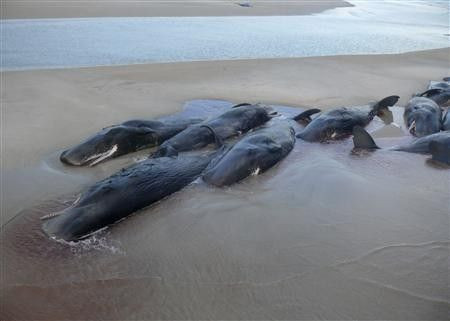Souvenir Hunters In South Australia Target Dead Whales' Teeth

Officials from the Marine Wildlife and Rescue Organisation said that the whales that died on a South Australian beach are being targeted by souvenir hunters. They said that the teeth were taken off from many of the carcasses.
According to ABC News, the whales were found on the Yorke Peninsula, west of Adelaide. A marine rescuer, Aaron Machado, said that the souvenir hunters had targeted two of the whales. He had noticed a total of six teeth missing from two whales, of which five were from one whale and one from the other.
He also said that the souvenir hunters had taken them out with a hacksaw because of which a lot of damage was done to the whales. He added that all this happened despite the efforts that were taken to keep the people away. He said that someone was doing a night check on the beach when the person spotted a few people leaving the beach in a hurry.
Because the teeth that were taken away by the souvenir hunters were small, it would not have much value when compared to other whales which would weigh up to one kilogramme. He explained that the healthy females that were attended to had fantastic blubber somewhere.
One of the whales had left a calf out at sea because they had found one lactating female. He hoped that it wasn't a calf that they had found refloating the other day. He also hoped that the calf was weaned or close enough to it so that it can survive without the mother.
Whales are social animals, and if one of the whales fell ill, the sick whale would try alienating itself, but the other whales would follow. This could be the reason why the whales beached in the area. He said that one of the theory that was going around was that seismic blasting could have been a factor.
Deb Kelly from the South Australian Environment Department said that if any effort was taken to move the carcasses, it would be on the expensive side. She explained that once a carcass was moved in Western Australia, and it cost $170,000. She said that if the whales had to be moved, then someone would have to pay for it, and there was no place where it could be moved to.





















